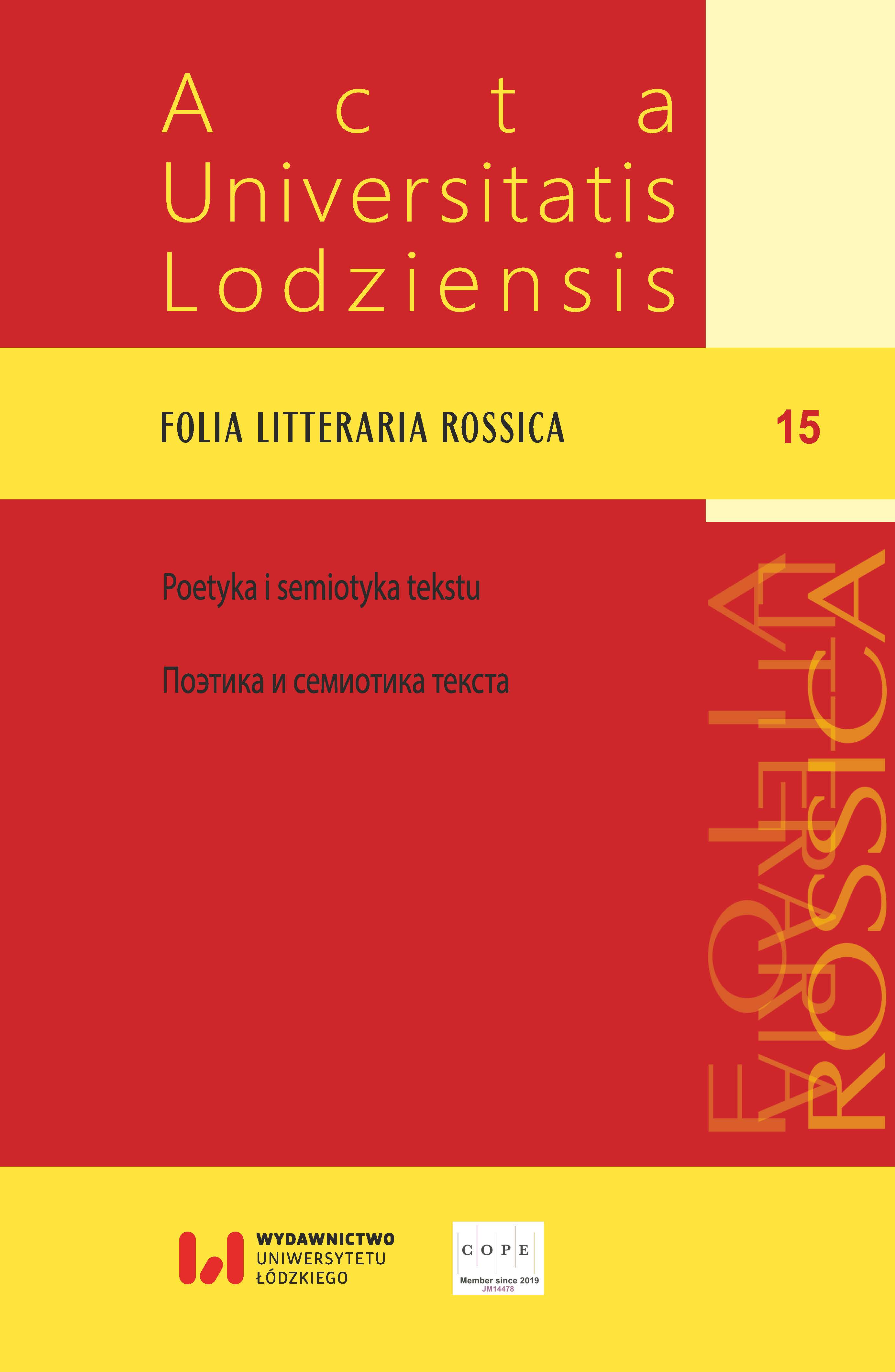Oleg, the Sorcerer, and the Two Alexanders (The Political Subtext of Pushkin’s Ballad “The Song of the Wise Oleg”)
DOI:
https://doi.org/10.18778/1427-9681.15.18Keywords:
Alexandеr Pushkin, Nikolai Karamzin, Oleg, ballad, miracleAbstract
Alexander Pushkin wrote his ballad “The Song of the Wise Oleg” (1822) in Kishinev during his forced administrative presence in the South (1820–1824). The poem retells, with meaningful differences, a legend in Nikolay Karamzin’s History of the Russian State that describes the miraculous death of the Kievan Prince Oleg, who is bitten by a snake hiding in the skull of the hero’s dead horse. The poem was inspired by Pushkin’s visit to Kamenka and Kiev in 1821 and his acquaintance there with the assembled members of the future Decembrist uprising, as well as his visit to the supposed site of Oleg’s grave. An examination of the work in the context of Pushkin’s Southern Text reveals that the poem is an allegory of the poet’s relationship with Alexander I and reflects his fears about the coming political upheaval in Russia and the potential death of the Tsar. The ballad contains the first instance of a motif that becomes familiar in his subsequent work, namely the miracle (chudo) as a sudden, unexpected, and life-changing event. The poetics of the poem represents an important step towards Pushkin’s masterpiece The Comedy of Tsar Boris and Grishka Otrepyev (1825; published in 1831 with the title Boris Godunov).
Downloads
References
Clayton, J. Douglas. Ten Dmitriya. Opyt prochteniya pushkinskogo “Borisa Godunova”. Sankt-Peterburg: Akademicheskii proekt. Izdatelstvo DNK, 2007.
Google Scholar
Karamzin, Nikolai M. Istoriya gosudarstva rossiiskogo. Vol. I. Moskva: Kniga, 1988.
Google Scholar
Nemzer, Andrei. ‘Pesn o veshchem Olege’ i ee sledstviya. In: Acta Slavica Estonica IV. Trudy po russkoi i slavyanskoi filologii. Litera-turovedenie, IX. Khrestomatiinye teksty: russkaya pedagogicheskaya praktika XIX v. i poeticheskii kanon, eds. A. Vdovin, R. Leibov. Tartu, 2013: 233–301.
Google Scholar
Pushkin, Alexander S. Polnoe sobranie sochinenii: v 10 t. Vol. 4. Leningrad: Nauka. Leningrad. Otdelenie, 1977.
Google Scholar
Ryleyev, Konstantin F. Polnoe sobranie stikhotvorenii. Leningrad: Sovetskii pisatel, 1971.
Google Scholar
Yazykov, Nikolai M. Polnoe sobranie stikhotvorenii, ed. M. K. Azadovskii. Moskva; Leningrad: Academia, 1934.
Google Scholar
Yazykov, Nikolai M. Stikhotvoreniya. Moskva-Leningrad: Academia 1934.
Google Scholar
Downloads
Published
How to Cite
Issue
Section
License

This work is licensed under a Creative Commons Attribution-NonCommercial-NoDerivatives 4.0 International License.












